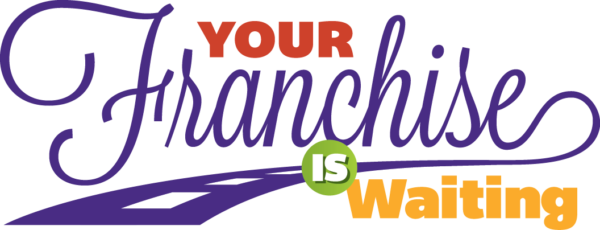Finding the Money!
When I talk with clients, financing their franchise is almost always one of their major considerations.
Here’s a quick review of the most popular ways businesses get financed:
Savings
The first and most obvious option is to look at your (non-retirement) savings. If you have mutual funds and other liquid investments, you can liquidate (taxes will be incurred) and apply towards your franchise. Many people feel more secure investing in their own abilities rather than the unpredictability and lack of control inherent in the markets. If you are fortunate enough that your portfolio exceeds the amount of money you need – you can simply borrow against your securities. Interest rates are good, and you pay yourself back when you can. If your need for funding is half (or less than half) of the value of your securities, this is a good route to go. Using some of your savings to help fund your franchise is always ideal – and, in fact, lenders will always require you to use SOME of your own dollars. When it comes to fully funding your business from your own personal assets, one thing to keep in mind is that experts recommend that you never invest more than 75% of your cash reserves. For example: If you have $100,000 in savings, invest no more than $75,000 of your own cash.
Rollovers as Business Startups (ROBS)
Another option is to use your retirement funds. This has become one of the most popular ways over the last few years to finance franchises. There are specialized financial companies that will set up the ability for you to invest your retirement funds into your business. This can be a very attractive way to go if you feel that your business will grow in value and that you may want to sell it in the future. The retirement account will own the business, and when you sell, the bulk of the capital gains will be sheltered inside the account. Best of all, ROBS allow you to access your retirement funds without incurring taxes regardless of your age. And finally, this option allows you to start your new business completely debt free – you don’t have to pay back the money you withdrew unless you want to replenish your retirement savings. This account is now your business retirement plan which you can fund or not fund going forward.
Bank and Credit Union Loans
If using your savings isn’t the best choice for you, another option is to get a loan from your bank or credit union.
The Wall Street Journal reports, “Commercial banks fund many franchises, so look to these lenders first. The single most important issue in landing bank financing is your credit rating. You will need to present a complete loan package including a personal financial statement, copies of personal tax returns for three years, and verification of the source of your down payment.”
Keep in mind that your franchise choice will have an influence on whether or not you will receive a loan. Franchises with hundreds of locations and successful track records are going to be most attractive to banks. An emerging brand that just started a year ago will be much more challenging to find financing for.
When meeting with a bank or credit union, be prepared to provide three years’ worth of tax returns and personal financial statements. You should also be prepared to be asked to put in your own money. They usually ask for between 20% – 30% of the amount needed so that you have “skin in the game”.
SBA Loans
Another great option is to get a loan backed by the U.S Small Business Administration (SBA).
One reason SBA loans are so appealing is because they are partially guaranteed by the government, which makes them less of a risk to the lender. These loans provide short-term capital (typically 7 or 10-year terms) that can cover your franchise fee, equipment, lease buildout and working capital. Generally speaking, the total of the highest end of the range in item 7 of the franchise disclosure document is the total amount of loan you will be considered for. These loans carry different interest rates, but usually are 2.75% over prime and will require you to inject anywhere from 20-30% of the loan in cash.
Home Equity Lines of Credit
Home equity lines of credit are cheap (both in fees and interest rate cost) and allow you to tap into the built up equity in your home with very little paperwork and fees – generally just an appraisal. Of course, your house has to be worth much more than your mortgage!
Unsecured Lines of Credit
No discussion of funding would be complete without talking about unsecured lines of (business) credit.
A non-traditional line of credit in the form of business credit cards are among the easiest lines of credit you can get. It will provide fast access to cash, and payment flexibility typically associated with a traditional credit line but without all the drawbacks.
Qualifying for this type of revolving credit line is FICO® driven and doesn’t require the yearly reviews, excessive documentation, and level of scrutiny that comes with a traditional credit line.
Some of the advantages of non-traditional business lines of credit are as follows:
1) Access to cash quickly – With unsecured business credit cards, you can utilize as much or as little credit from your line as you want to, anytime and anywhere
2) High credit limits – Business credit cards carry high credit limits, making it extremely convenient to finance larger business purchases. Many cards even offer 0% APR for the first 12 months.
3) Flexibility – With business credit cards you have flexible payment options compared to a fixed month-to-month payment that comes with a business loan. When you tap into your credit line, you have three options every month. You could pay the full amount due, pay a minimal portion of the balance or pay greater than the minimum amount due.
4) True separation – Business credit cards enable business owners to separate personal and business expenses while benefiting from business credit reporting. This makes it possible for business owners to establish the creditworthiness of the business itself.
Of course, these lines of credit have drawbacks as well: once the introductory interest rate is over, the rates jump and you can get into trouble quickly. It’s important to get those credit card debts paid off first.
We generally recommend only lining up unsecured lines of credit as a supplemental form of “insurance” so you can be well capitalized for those first few months when cash flow will be minimal.
Don’t forget many new businesses have been financed by friends and relatives.
In short: Do your due diligence, put together a business plan, and you can (usually) find the money!

